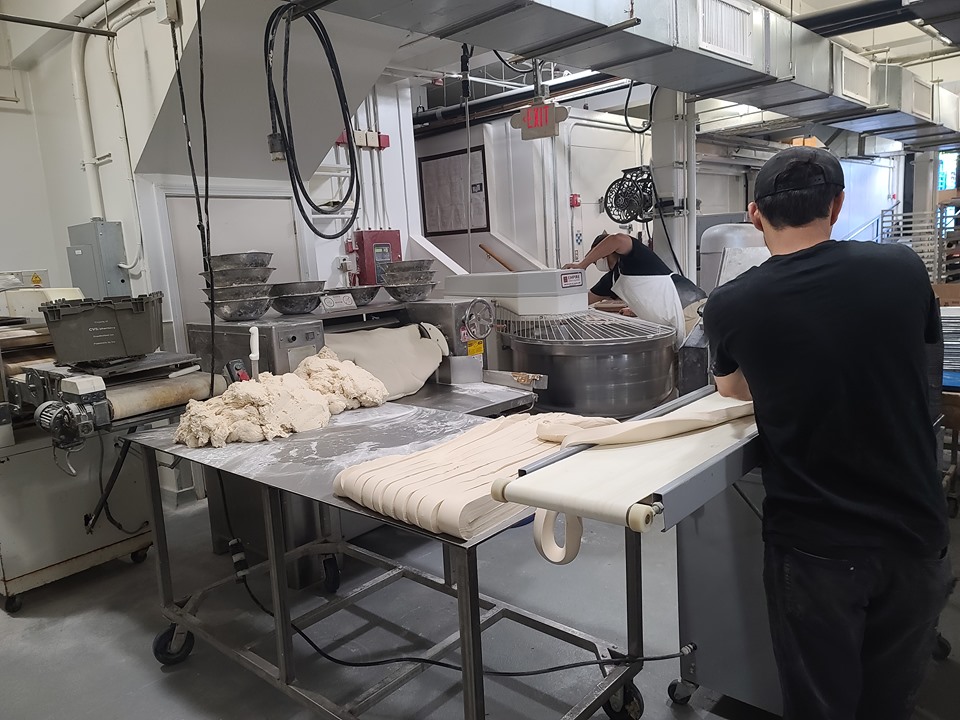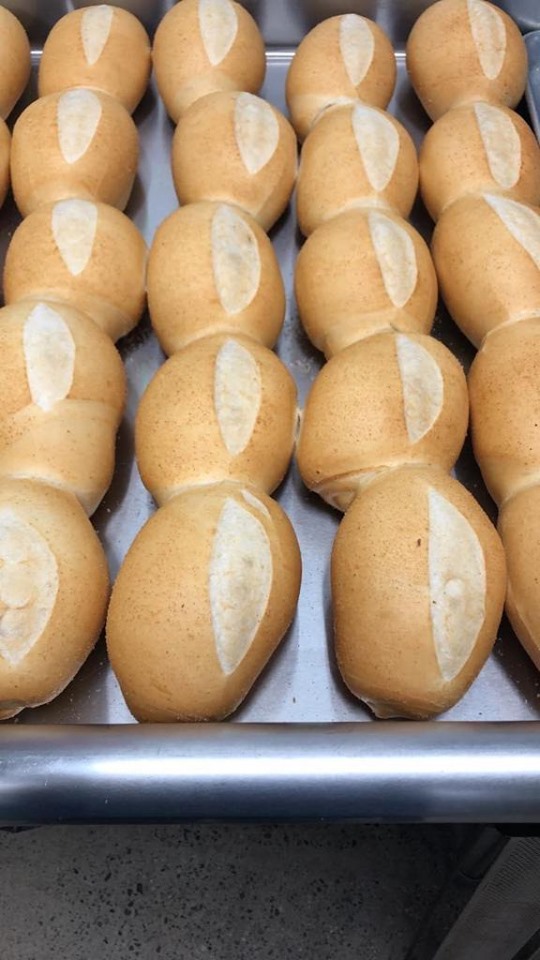Posted at 10:55 a.m. Last updated with quote from Rep. jack Patrick Lewis.
***
[broadstreet zone=”51611″]
FRAMINGHAM – After a 3-person baking enterprise recently received preliminary use denial under artisan production from the City of Framingham’s Inspectional Services department, Downtown Framingham, Inc. (DFI) is partnering with state and local officials to spur economic development in the Central Business District by first expanding the definition of Artisan Production and second incentivizing local retail distribution of artisan goods and foods.
Currently, artisan production only includes one type of food production – confectionary. Other food producers, including bakers, would be considered wholesale use, under the City of Framingham’s zoning laws.
Artisan use is allowed by right in the Central Business District, whereas wholesale use not allowed, explained Downtown Framingham Inc.
[broadstreet zone=”80100″]
“Starting a business is a financial risk, especially now. It’s critical to provide businesses, at minimum, the clarity that their intended use is acceptable prior to submitting a building permit, which typically includes hiring an architect and placing a downtown payment on a space,” said Courtney Thraen, Executive Director of Downtown Framingham, Inc. (DFI).
DFI recently learned that a 3-person, bread-making operation that would create 25 loaves per hour in an 1,865 square -foot underutilized storage space received preliminary artisanal use denial from two senior members of the Inspectional Services Department.
AA Bread sought to operate in downtown Framingham.
“I was asked whether a wholesale bread baker could open on Hollis Street in the CB District. As per section II. B.6.B. of the city’s zoning ordinance, this type of business is not allowed in the CB District,” said Framingham Building Inspector Michael Tusino. “A few days later a follow-up question was asked if the wholesale baker could be considered “Artisan Production/Creative Enterprise” per section II.B.6.N of the city’s Zoning Ordinance. In my opinion, the wholesale baker did not fit into this category.”

On this matter, two senior members of the Planning and Community Development Department deferred to the judgment of the Inspectional Services team, with one stating that there is gray area in the Artisan Production definition, but applying to the Zoning Board of Appeals is an option once the building permit is denied.
“Artisan production is allowed by right in the CB district,” wrote City of Framingham senior planner Sam Scoppettone, to Downtown Framingham Inc’s executive Director. “As the current definition in the zoning states, the business must have 10 or fewer employees and be engaged in hand-fabricated consumer goods.”
“On the other hand, ‘Wholesale Businesses’ are not an allowed use in the CB district. So I’m guessing that there is some gray area where the business could fall under either definition,” wrote Scopperttone. “While the dictionary definition of “confectionery” refers to sweet foods, the By-Law also mentions ‘equivalents’ can fall within the Artisan Production definition. To me, this suggests that bakeries can also fall under Artisan Production, but I don’t make the zoning determination. My read of the definition is that showrooms and ancillary sales on premises are allowed, not required.”
[broadstreet zone=”53820″]
“This strict application of the current artisan use bylaw presents a precedent that could have a chilling effect on supporting locally made foods and goods. Small-scale production is one way to help combat the effects of the current pandemic, and activation of underutilized spaces in the Central Business District helps commercial property owners pay the hefty tax rate during this time,” said Thraen.
Downtown Framingham Inc. is working with members of the Framingham City Council and state legislators to first expand the definition of the artisan production and to second enable local-area retail as an incentive to start a small-scale production in the Central Business District.
“Artisan creators should be welcomed in our greater Downtown. I’ve been advocating to our full-time professional Planning and Community Development team to proactively develop solutions for these small businesses so they can easily come to Framingham and grow in Framingham. Other communities have figured this out,” said City Council Michael Cannon, who chairs the City Council’s Economic Development subcommittee.
“Courtney Thraen and DFI have been outstanding, and their collaboration with our building commissioner has definitely yielded positive results. However, the administration and our full time Planning and Community Development staff need to step up and develop proactive solutions. Otherwise, we will continue to miss out on these opportunities,” said District 4 City Councilor Cannon.
[broadstreet zone=”59948″]
“Downtown Framingham Inc. does remarkable work in our community by supporting and expanding the diverse local small businesses and by giving people more wonderful reasons to come downtown. I look forward to exploring locally and at the state level what may be possible as it relates to small-scale manufacturing and greater support for local artisans,” said Framingham State Rep. Jack Patrick Lewis.
“I’m also working with a local commercial property owner interested in applying for the FY22 MassDevelopment Collaborative Workspace Program next summer near a current destination location. Ideally this facility would be a marketable center for small-scale artisan production along with hosting a regular, indoors public market. This attraction would heavily complement the area and inspire more people to live, work, and recreate in Framingham,” said Thraen.
In the 1800s and early 1900s, downtown Framingham was a mecca of small-scale production.
“For 50 years, Mary Eames Rice hand-produced Dunstable bonnets from straw in the Nutting Building on Park Street. Today, would Mary’s business fall under Artisan Production as an apparel item? Or, would it receive artisan use denial, as hats may be defined as accessories, a wholesale use, and not apparel, an artisan use?” said Thraen.

***


Photos courtesy
